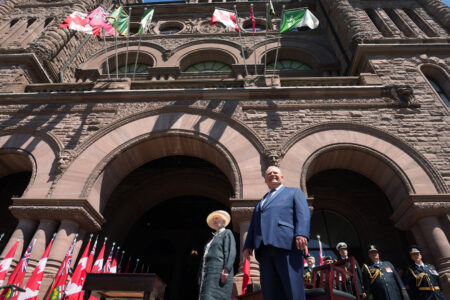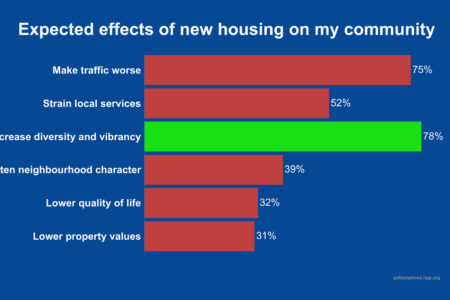
Much of the third sector, NGO world, civil society or whichever name you use, has spent the last year preparing for the federal election, expected in October.
With a mandate to advance and influence public policy, provide services and represent sections of citizenry, it’s easy to see why an election campaign is a temptingly obvious place for civil society to engage. The election date is (somewhat) fixed, giving plenty of lead time. Elections create a national focus on issues, much media attention, and a chance to lobby prospective MPs. It seems ideal, really.
Many civil society organizations have spent, and will spend, a great deal of money. There are GR and PR firms to hire, shiny websites to build, polling to commission, and election platforms to release.
In theory, the aim is twofold – to empower grassroots citizens to engage prospective MPs in their constituencies, and to influence the national political discourse to ensure your issue gains traction.
But how realistic is this aim? How connected is it to the way campaigns actually unfold? And is a crowded election campaign, itself more a political communications exercise than a policy discussion space, the best place for civil society to influence political decision-making?
It’s becoming increasingly clear to me (and I’ve developed election campaigns for two major civil society organizations) that elections are actually one of the least useful spaces to effect policy change.
One – it’s an incredibly crowded space. If you don’t have a news hook, if you aren’t a major organisation, or, if your issue isn’t ”˜hot’ (and even then, a scandal or some such is hardly the environment in which you’d want to engage), then I wish you luck finding room for debate.
Two – it’s an incredibly volatile space. Strategist and comms folks who’ve been doing this for decades still get it wrong. If you don’t have a rapid reaction capacity, and aren’t comfortable in the cut-and-thrust of a national campaign, perhaps the environment isn’t for you.
Three – the environment is even more distilled to tight talking points and unalterable messaging than usual. One small slip can derail a national campaign for parties. Please abandon your lovely idea of enticing candidates, parties or leaders into a free-flowing, wide-ranging policy discussion.
Four – the campaigns are increasingly centralised. As are parties in Parliament, so are campaigns. Candidates off-message, rogue spokespeople, or hidden camera remarks can all sink an entire campaign. So messaging, themes, and strategy are coordinated from the centre. You can send each candidate a form email asking them to endorse a carbon tax. In return, you’ll get a form response from a correspondence officer at party HQ. Candidates are unlikely to freelance, committing themselves to policies outside their party platforms. They’ll usually agree that they care about your issue. And of course, can point to ways they or their colleagues have addressed it in the past. But if it’s not party policy, you’re not getting a commitment firm enough to hold them accountable post-election.
Five – party policy is already set. The platform was developed, drafted, tested, laid out and sent to the printers weeks ago. You’re unlikely to force a mid-election u-turn (unless you get a Gordon Brown moment where a leader suddenly needs a tougher immigration policy, after being overheard calling a voter a bigot). No party wants to be forced off their message of the day. They want to set the agenda, not clamber to catch up with it.
Six – Public policy gets complicated. That’s why parties distill it to clean soundbites and simple messages. If you can’t do that too, it’s likely not going to work out for you.
Seven – my experience says that political parties are far ahead of civil society in terms of election strategy and tactics. Form postcards to candidates are terribly 2006. Parties have taken the lead from the US, with sophisticated databases, digital media strategies, micro-targeting and more. Most CSOs simply can’t compete.
Eight – Elections are short-term. They’re one, small tool in a wider debate. You need sustained follow-up. You need to have the policy debate before the election, and convince parties to put your ask in their platforms. Then work after the elections to hold them accountable for their platforms. Don’t put all your eggs in the election basket.
And yet, having said all that, perhaps I’ve presented a defeatist position. An election campaign should be *the* place for civil society organizations to engage. To shape public opinion, to highlight the problems we face, to represent their members, and to push candidates to prove they’re worthy our votes. It says something about the state of democracy that election campaigns are essentially, a policy discussion vacuum.
So where is the value in elections campaigns, for civil society? I’d suggest elections are a much better tool for invigorating your base, educating them and providing them with an outlet for their passions. They can attend all-candidates debates, write letters to the editor, host policy discussions amongst themselves, and identify potential champions of their issues. This is democracy in action. Its impact on political decision-making is debatable, but as a means of empowering Canadians to engage politically, it can be very effective.
And perhaps therein lies the disconnect. Civil society wants to engage in elections. They feel they have (and should have) a crucial role to play. In many cases, they are deeply involved. And yet, their involvement appears entirely unconnected to any impact.
This sounds awfully cynical. And that’s not the intent. But if you’re going to engage as a civil society organisation, do it with your eyes open.







